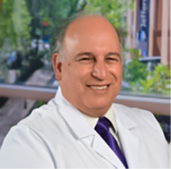
Kenneth Certa, MD, DLFAPA
The government relations committee has been working on several issues of interest to PaPS members; some familiar, some new. To see the text of a bill, you can go to https://www.palegis.us/legislation/bills followed by the bill number (either hb or sb.)
Psychology prescribing (HB 1000) continues to be a major focus of our efforts. Thanks to the advocacy of PaPS members, it appears that the committee chair will not be moving the bill at this time; the votes aren’t there. We continue to work with the members of the House Professional Licensure committee to educate them about alternatives to increase access to care.
State senator Gene Yaw has been persuaded by some of his constituents to introduce a bill mirroring HB 1000 in the senate, though he has not yet done so (he has put out a co-sponsorship memo.) His district includes some of the most rural in PA (Bradford, Sullivan, Lycoming, Tioga and Union counties) and he chairs the Center for Rural Pennsylvania. The center held a public hearing in Harrisburg on April 8, 2025 entitled Advancing Rural Mental Health Access and Support. One of the speakers presented the case for psychologist prescribing; here’s the link https://www.rural.pa.gov/download.cfm?file=Resources/PDFs/news/Schurr%20Testimony-20250403.pdf. Note that the bulk of the testimony centers on lack of access to care, which of course includes psychological services without the expansion of scope being sought. It is a tricky blurring of message, and the statements about number of hours of supervised training seem impressive until one counts the number of hours in psychiatry residency training (more than 8 times as many hours.) We hope our members are in touch with their state senators registering their opposition to co-sponsorship.
We are interested in member input into HB 1519 on prior authorization, introduced by Rep Malagari. It prohibits the use of prior auth in any insurance plan in PA. It sounds great to many, but there is a potential hidden very real cost which we must consider. Prescribers who are heavily influenced by novelty (or pharma lobbying) may prescribe the latest product that comes on the market without considering cost. Getting rid of prior auth is mighty tempting; we’re interested in input.
We have partnered with the Pennsylvania Society for Addiction Medicine to support regulation of kratom. It is banned in many states, and many more are struggling with how best to regulate its usage. There are bills in the senate (SB 0233) and house (HB 2058) which take various approaches, short of an outright ban: requiring over 21 to buy, placing on a schedule of controlled substances, regulating not just kratom but also other 7-hydroxymitragynine products. Dr. Rob Tessier has been remarkably active in this effort, as a member of both PaPS and PSAM, working with the house and senate sponsors to get something crafted which will make a difference, and can get past opposition to regulation.
Attempts to legalize recreational cannabis failed this session, despite passing the house (HB 1200); it was not considered by the senate. A measure which we have supported is an effort to authorize the Department of Health to regulate testing of cannabis products, sponsored by Rep Dan Frankel (who had co-written HB 1200, as well as HB 1000; he chairs the house health committee.) HB 33 is an effort to prevent current cannabis providers from shopping around for testing companies which have the lowest fail rate, and which could endanger the public with adulterants and wildly varying degrees of potency.
Artificial intelligence and its potential for harm to vulnerable individuals is much on the minds of many people. Efforts to regulate the use of AI in the treatment of mental illness are underway, with HB 2100 introduced to seriously restrict the use of generative AI. We are reviewing the proposed definitions and regulations to ensure that they will not unduly stifle research and use of technology which may be of great help to our patients and profession.
We continue to press on for funding startup costs for collaborative care, as well as some way to protect the public from the ravages of problem gambling. So far there has been little movement on changes to the Mental Health Procedures Act, except for notice of proposed rulemaking published December 6 in the Pennsylvania Bulletin (55 Pa.B. 8235). This will amend the 5100 regulations under the act, to bring it in better alignment with Act 32 of 2022 and HIPAA. Our review has not identified concerns.
If there are other issues of concern to members we welcome input into how PaPS can be more effective in the role of government in the practice of psychiatry.